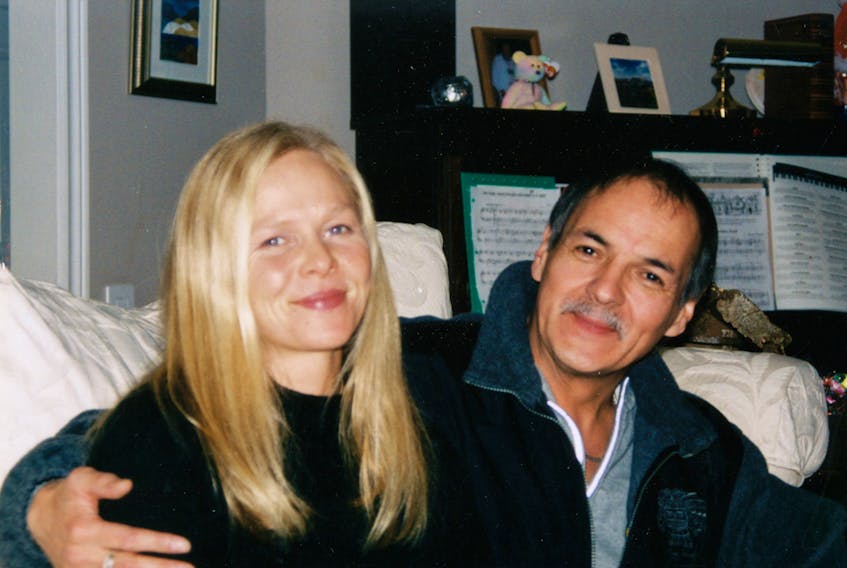SYDNEY, N.S. — The lasting legacy of Donald Marshall Jr. is the subject of a new book by his former partner, anthropologist Jane McMillan.
“Really it was about honouring his legacy, but at its heart it’s sort of a love story,” said McMillan, a professor at St. Francis Xavier University in Antigonish.
In a relationship with Marshall for 13 years, McMillan met the exonerated man in 1991 at a Halifax cabaret.
At the time, she was a young university student who had just finished watching a film about Marshall’s life.
She said their encounter that night sparked an immediate connection.
“He asked me my name. I said, ‘it’s Jane’ and he said, ‘Oh, I’m Tarzan’, and that was really it,” McMillan said in a recent telephone interview.
“The rest of it was history. After that, my life changed dramatically from that moment on.”
Marshall was born in Membertou as the eldest of 13 children. He was destined to assume the role of hereditary chief of the Mi’kmaq Nation, when in 1971, at the age of 17, he was wrongly convicted of murder.
McMillan said her book recalls how one man’s fight against racism and injustice transformed the criminal justice system and galvanized the Mi’kmaq nation’s struggle for self-determination.
McMillan’s experience with Marshall also helped guide her toward a doctoral degree in anthropology, which she earned in 2003 from the University of British Columbia.
“I wanted to really capture the complexity of his life and the story in the hopes of portraying the huge systemic challenges that Indigenous people face within our justice system and their amazing resilience to overcome that oppression,” she said.
Marshall had met acquaintance Sandy Seale, who was also 17 years old, by chance at Wentworth Park in Sydney on the evening of May 28, 1971.
After a brief exchange with two older men, one of the strangers pulled a knife from his cloak and stabbed Seale in the abdomen before running away. Seale would die from his injuries.
Despite maintaining his innocence throughout, Marshall became the victim of a bungled investigation resulting from police tunnel vision.
Throughout his 11 years spent in jail, Marshall maintained his innocence in Seale’s death. But his unwillingness to come to terms with the crime was instead viewed as a moral failing.
McMillan’s book features many old photographs of Marshall, including his prisoner mugshots.
There are also poems and letters he wrote while serving time in prison.
Upon his acquittal in 1983, an appeal court would refer to Marshall as “the author of his own misfortune”.
In response to public outcry, a Royal Commission report was published vindicating Marshall and uncovering a justice system rife with racism, incompetence and miscarriages of justice.
McMillan said writing a book was always something Marshall had wished to complete before his death.
Marshall succumbed to complications from a double lung transplant in August 2009. He was 55.









